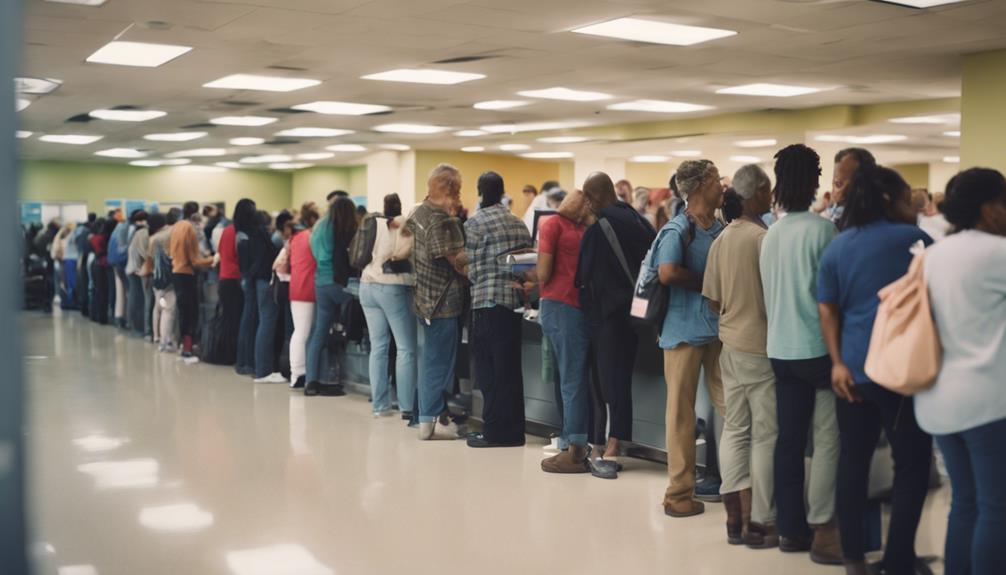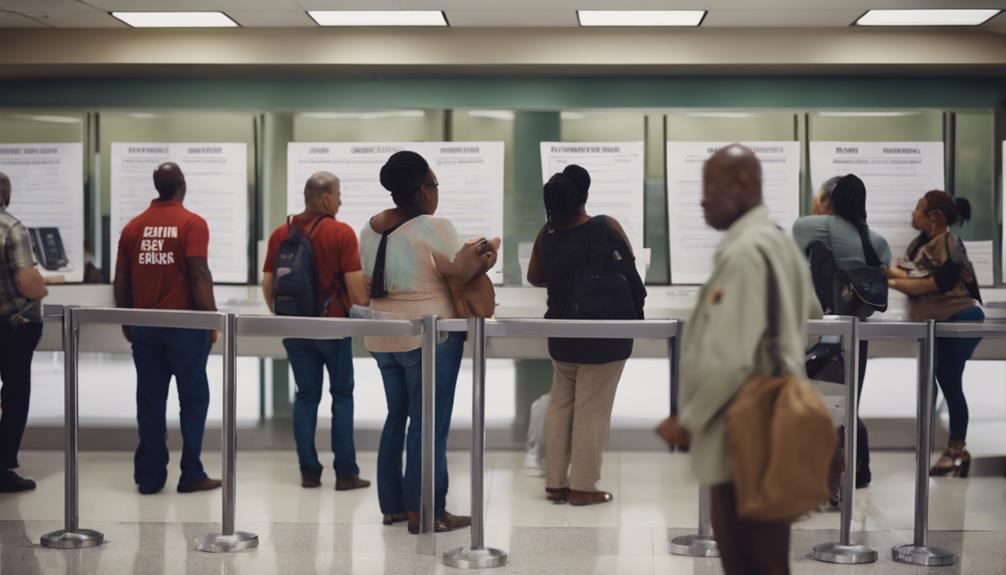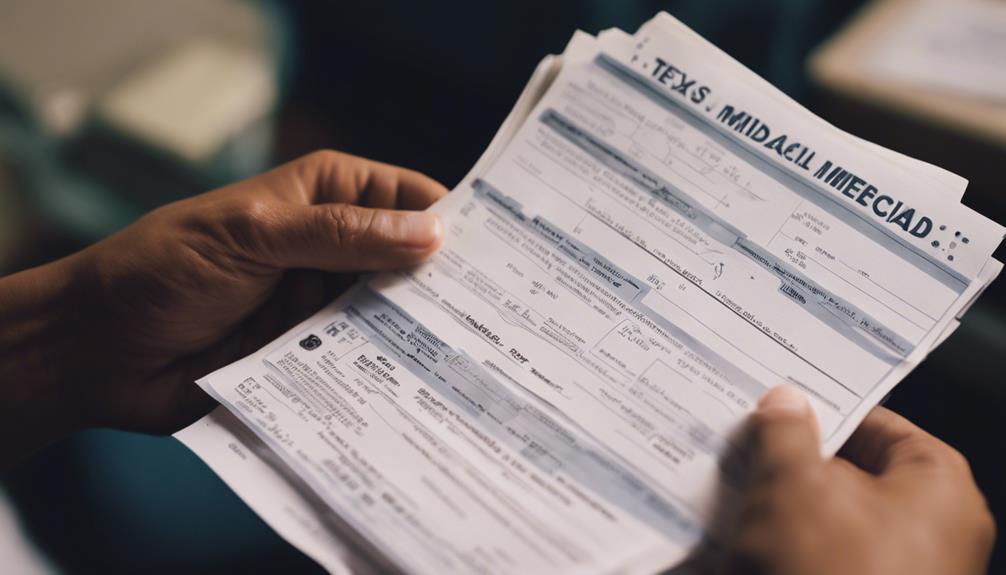Submitting required documents for Texas Emergency Medicaid is crucial to confirm eligibility and ensure a seamless application process. Proof of identity, residency, income, and medical necessity documentation plays a vital role. These documents validate criteria like income, household size, and healthcare needs, aiding authorities in accurate assessment. Essential documents such as government-issued photo ID, utility bills, pay stubs, and medical evidence establish eligibility. Additional supporting records can strengthen your application. By fulfilling document requirements, you streamline the verification process and increase your chances of approval.
Importance of Required Documents

Why are the required documents crucial when applying for Texas Emergency Medicaid?
Eligibility criteria for Texas Emergency Medicaid necessitate specific document requirements to validate an individual's eligibility for the program. When embarking on the application process, ensuring that all necessary documents are submitted accurately is paramount for a smooth application experience.
The application process for Texas Emergency Medicaid involves providing documentation to establish eligibility based on income, household size, and medical need.
Document submission is a critical step in the process, as it allows the authorities to verify the information provided and make informed decisions regarding an individual's qualification for the program. Without the required documents, it becomes challenging for the review board to assess an applicant's eligibility accurately.
Therefore, understanding and fulfilling the document requirements for Texas Emergency Medicaid is pivotal to streamline the application process and increase the chances of approval. By adhering to the specified document guidelines, applicants can expedite the review process and access the necessary healthcare services promptly.
Proof of Identity and Residency
Submitting proof of identity and residency is a fundamental requirement when applying for Texas Emergency Medicaid. To establish eligibility for the program, you must provide documents that verify both your identity and your residency in the state.
Proof of identity typically includes a government-issued photo ID, such as a driver's license or passport. This helps ensure that the person applying for benefits is indeed who they claim to be.
In addition to proving your identity, you'll also need to provide documentation to verify your residency in Texas. This can be accomplished through various means, such as presenting utility bills, a lease agreement, or official correspondence with your address clearly stated.
Address verification is crucial as it confirms that you reside within the state and are eligible to apply for Texas Emergency Medicaid.
Income Verification

To verify your income for Texas Emergency Medicaid, you must provide documentation demonstrating your financial resources. Proof of income is crucial for eligibility verification in determining your qualification for the program.
Acceptable documents for income verification may include pay stubs, tax returns, bank statements, or a letter from your employer detailing your wages. These documents serve as evidence of your financial situation and are necessary to assess your eligibility for Texas Emergency Medicaid.
When submitting proof of income, ensure that the documents are current and accurately reflect your financial status. Incomplete or outdated information may delay the processing of your application or lead to potential disqualification.
It's essential to provide clear and legible copies of the required documents to expedite the verification process.
Medical Necessity Documentation
For the evaluation of your eligibility for Texas Emergency Medicaid, the submission of appropriate medical necessity documentation is imperative in demonstrating the specific need for healthcare services or treatments.
Required forms, along with supporting evidence, play a crucial role in this process. These documents should outline the medical condition requiring immediate attention, the treatment plan proposed, and the expected outcomes.
Compliance with the guidelines set forth by Texas Emergency Medicaid is essential to ensure eligibility verification. The medical necessity documentation should align with the program's criteria to receive approval for coverage.
It's important to provide detailed information that clearly establishes the urgency and significance of the healthcare services needed.
Additional Supporting Documents

You may include supplementary records that bolster your application for Texas Emergency Medicaid. These additional supporting documents play a crucial role in the document verification process and can significantly impact your eligibility for the program.
When submitting your application, it's essential to ensure that all necessary documentation aligns with the eligibility requirements set forth by Texas Emergency Medicaid.
Document verification is a key step in the application process, and providing thorough and accurate supporting records can expedite the verification process. These additional documents could include proof of income, residency verification, medical bills, and any other relevant paperwork that strengthens your case for eligibility.
Meeting the eligibility requirements is fundamental to qualifying for Texas Emergency Medicaid, and having comprehensive supporting documents can help solidify your application.
Submission and Verification Process
As you progress through the Texas Emergency Medicaid application process, the submission and verification of your documents play a pivotal role in determining your eligibility for the program.
The submission process requires you to provide all requested documentation accurately and promptly. Failure to submit all necessary documents may result in delays or denial of your application.
Verification requirements are stringent to ensure that only eligible individuals receive benefits. Once you submit your documents, they undergo a thorough verification process to confirm their authenticity and accuracy.
This process may involve cross-referencing the information provided with external databases or contacting relevant authorities for verification.
To expedite the verification process, it's crucial to submit clear, legible copies of your documents. Any discrepancies or inconsistencies found during verification may lead to further delays or potential rejection of your application.
Conclusion
You now understand the crucial role that required documents play in the Texas Emergency Medicaid application process. Without proper documentation, eligibility for benefits may be delayed or denied.
In fact, according to recent data, incomplete or missing documents are the leading cause of application rejections for emergency Medicaid in Texas. Therefore, it's essential to ensure all necessary paperwork is submitted accurately and promptly to expedite the verification process and receive the assistance needed.
